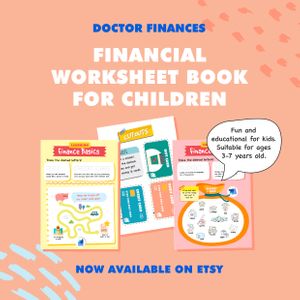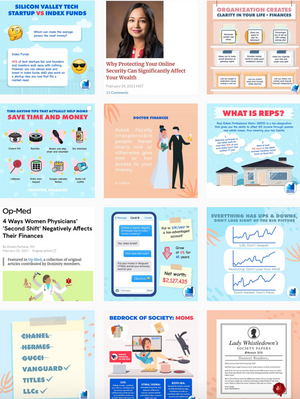2020 was a year where finances were top-of-mind for a lot of people. While there is a lot of great (and sometimes not-so-great) financial information on the web, there is never enough time to read and learn everything. A lot of the concepts I come across are things I have encountered before, but there are also a lot of great gems of new and unique information. This year, these are the top 5 new things I personally learned that made me see things differently, changed my perspective, or helped me save money:
1/ Real estate investments: Real estate investment information was big for me this year. I finally started listening to the BiggerPockets Podcast, which is amazing and blew me away on so many different levels. I think most of us have a limited view of real estate based on our personal experiences growing up, but there is so much to learn here. I especially enjoyed the first two episodes I listened to with Leka Devatha who talked about seeing opportunities in land and plots that others don’t, and from AJ Osborne, on not only why financial independence and passive income is so important, but also how to efficiently automate processes to increase value. I also began reading the real estate rental book by the host Brandon which is excellent as well. And lastly, after attending the L&G Summit and PIMD conference with Peter Kim, I further learned about tax saving strategies from Anderson Tax Advisors, and more on REPS status from Letizia and Kenji from SemiRetiredMD. Next year the plan is to do less reading and more implementation haha!
2/ Digging for tax savings: There are lots of great articles and podcast episodes to enjoy on White Coat Investor but the more interesting was definitely learning that buying a very unique investment that appreciates in value (such as dinosaur bones!) can create tax offsets as high as 635K!!!! That was mind-blowing. Though, I don’t know if I will go about digging for dinosaur bits in 2021....

3/ Unrewarding rewards: Jeremy’s posts are always great, and while I’m aware of most of the information, the post on credit card rewards and points influencing our subconscious decision-making definitely made me pause and think. It is true that I fall for the “final push” to buy something by reasoning with myself that “well, at least I’ll get 3% back on my purchase.” It really is sneaky (but brilliant on their part) that companies use such underlying psychology to convince us to make more purchases. When I would receive my final $300+ of cash-back rewards, I would think how great it was given I was going to buy all of those things anyway, but I’m pretty sure I wouldn’t have some of the final purchases without the small reward at the end.
4/ Importance of being relatable: I really enjoyed the episode of Yo Quiero Dinero with Julie and Kiersten of RichandRegular, as well as the one with Delyanne. Both were great episodes and very relatable as a first-generation college graduate myself. One of the main concepts that gave me perspective was that in order for people in any community to get their finances in order, they have to see people that they can relate to and are similar to them. It is true that there are lots of white men talking about financial literacy, but when people similar to you give advice based on situations similar to your own, that is most-often when we are convinced to take action. That is why it is so important for influencers in different underrepresented/BIPOC groups to discuss and post about investing, tax-saving strategies and growing generational wealth.
5/ Final one. How to tell if buying a home is a good idea: This one was actually a brain-teaser that my spouse and I really had to think through: and it was the decision of whether we should finally buy a home in the Bay Area after renting our whole lives. We are aware of all the general pros/cons of renting vs. buying, but with our growing family, yearly increases in rents, and a desire to have more space (especially due to pandemic!) we needed to make a real decision for ourselves. After running the number multiple times and thinking everything through, we finally came up with a way to quantify the “break-even point” of home buying: the amount we are paying in rent per month has to exceed the total cost of interest+insurance+taxes+HOA, and other monthly costs of a home purchase (and only leaving mortgage payment part out of equation). That is the only way it is a good financial decision. So what was our conclusion? Nope – not happening! Buying a home that is nice in this high cost of living area literally has no benefits for us - and we would ultimately lose about $1M in the next 10 years. The only option we have is that we would have to get something much lower in cost (needing significant fixing-up) to even make it a break-even proposition.

Bonus: One big unexpected way I made money this year was having something replaced through my renter’s insurance that I had purchased years ago. It was totally unexpected but worked like magic and now I’m a huge believer of renter’s insurance. As long as you are able to provide proof and follow up promptly, it’s a no-hassle process.
P.S. Stay tuned, I’m launching something fun and exciting on January 4th!
Thank you so much for reading! And thank you to all the awesome financial influencers for sharing your knowledge! Wishing everyone a Happy New Year!!






